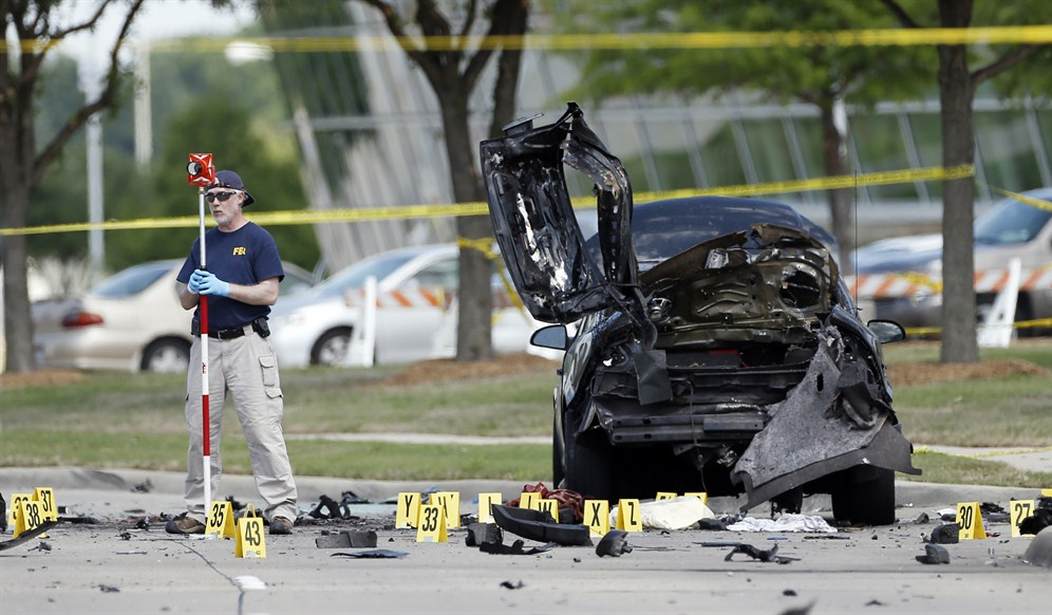Social media has quickly become one of the easiest means by which terrorists, particularly the Islamic State, communicate. One would think, then, that our law enforcement agencies would be monitoring sites like Twitter nonstop, and taking any and all threats seriously.
In the case of the Garland, Texas, shooting, however, director of SITE Intelligence Group Rita Katz says they warned the FBI a week in advance about the planned attack, yet they did not stop it from happening.
Attacker Elton Simpson, who was under previous FBI terror-related investigations, used Twitter to openly follow and communicate with high-profile terrorists. His account was followed by prominent English-speaking Islamic State fighters and recruiters Abu Rahin Aziz and Junaid Hussain — both of whom for a long time were known to provide manuals on how to carry out lone-wolf attacks from Raqqa, Syria, before they were killed. Simpson also followed and communicated with Mohamed Abdullahi Hassan, a known American jihadist in Somalia who pledged allegiance to the Islamic State.
Relatedly, the incitement for the Texas shooting came from Hassan’s 31st Twitter account. Simpson, a friend and follower of Hassan, retweeted the call and later requested that Hassan send him a direct message. We at SITE, using only open-source information, reported on the call before the attack took place, and the FBI had a week to investigate the matter before the shooting. Though only nine Twitter users retweeted the call for attack, the FBI failed to prevent it.
Rather than focusing so much on better regulation of encryption technology, which allows terrorists to communicate on sites like WhatsApp without the government snooping, Katz argues that law enforcement should focus more on combing through open-source information.
Recommended
It’s also important to note that jihadists are very quick to adapt online. In the past year alone, the Islamic State and al-Qaeda fighters have moved quickly from WhatsApp to Kik, Wickr, Surespot, then to Telegram – all different encryption programs created to give smartphone users safe and free text messaging available across multiple devices. Jihadists are constantly ranking, debating and explaining which of the services is the safest and most effective. Regulation of these programs will take jihadists next to no time to circumvent; the U.S. government would be the one taking years to catch up. And even if successful, they may be able to regulate companies based in the United States, but such programs would appear everywhere else, from Russia to India to China
Katz posits that open source information is "arguably the most important tool in tracking jihadists online." It's well past time law enforcement agencies recognize this and stop relying solely on classified material and 'back-end access to websites.' Garland proves open source provided more than enough of a lead--a week ahead of time--to prevent the attack. How many more open source threats will be ignored before they learn?
H/T: WeaselZippers

























Join the conversation as a VIP Member